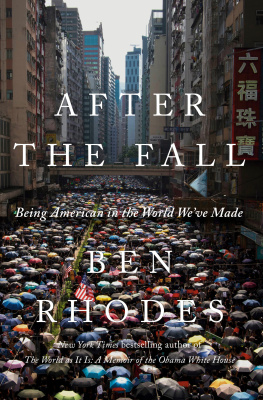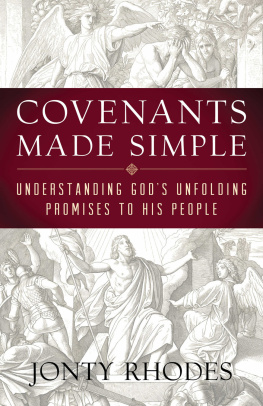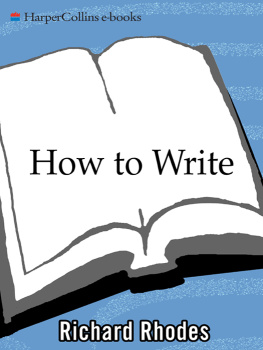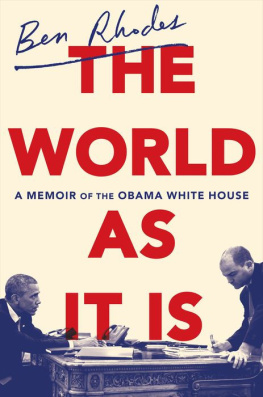Ben Rhodes - Being American in the World Weve Made
Here you can read online Ben Rhodes - Being American in the World Weve Made full text of the book (entire story) in english for free. Download pdf and epub, get meaning, cover and reviews about this ebook. year: 2021, publisher: Random House Publishing Group, genre: Politics. Description of the work, (preface) as well as reviews are available. Best literature library LitArk.com created for fans of good reading and offers a wide selection of genres:
Romance novel
Science fiction
Adventure
Detective
Science
History
Home and family
Prose
Art
Politics
Computer
Non-fiction
Religion
Business
Children
Humor
Choose a favorite category and find really read worthwhile books. Enjoy immersion in the world of imagination, feel the emotions of the characters or learn something new for yourself, make an fascinating discovery.
- Book:Being American in the World Weve Made
- Author:
- Publisher:Random House Publishing Group
- Genre:
- Year:2021
- Rating:4 / 5
- Favourites:Add to favourites
- Your mark:
- 80
- 1
- 2
- 3
- 4
- 5
Being American in the World Weve Made: summary, description and annotation
We offer to read an annotation, description, summary or preface (depends on what the author of the book "Being American in the World Weve Made" wrote himself). If you haven't found the necessary information about the book — write in the comments, we will try to find it.
Being American in the World Weve Made — read online for free the complete book (whole text) full work
Below is the text of the book, divided by pages. System saving the place of the last page read, allows you to conveniently read the book "Being American in the World Weve Made" online for free, without having to search again every time where you left off. Put a bookmark, and you can go to the page where you finished reading at any time.
Font size:
Interval:
Bookmark:
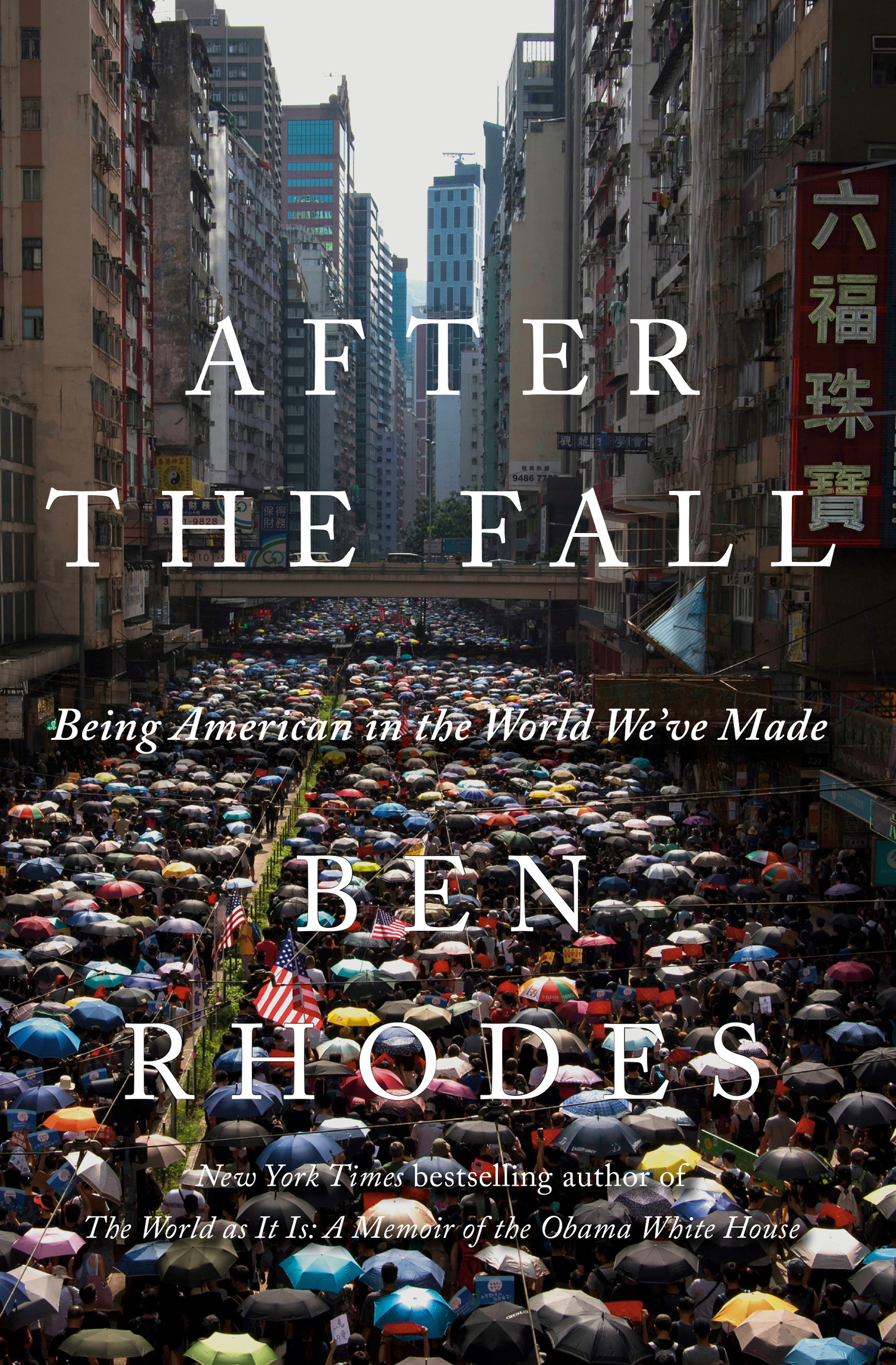
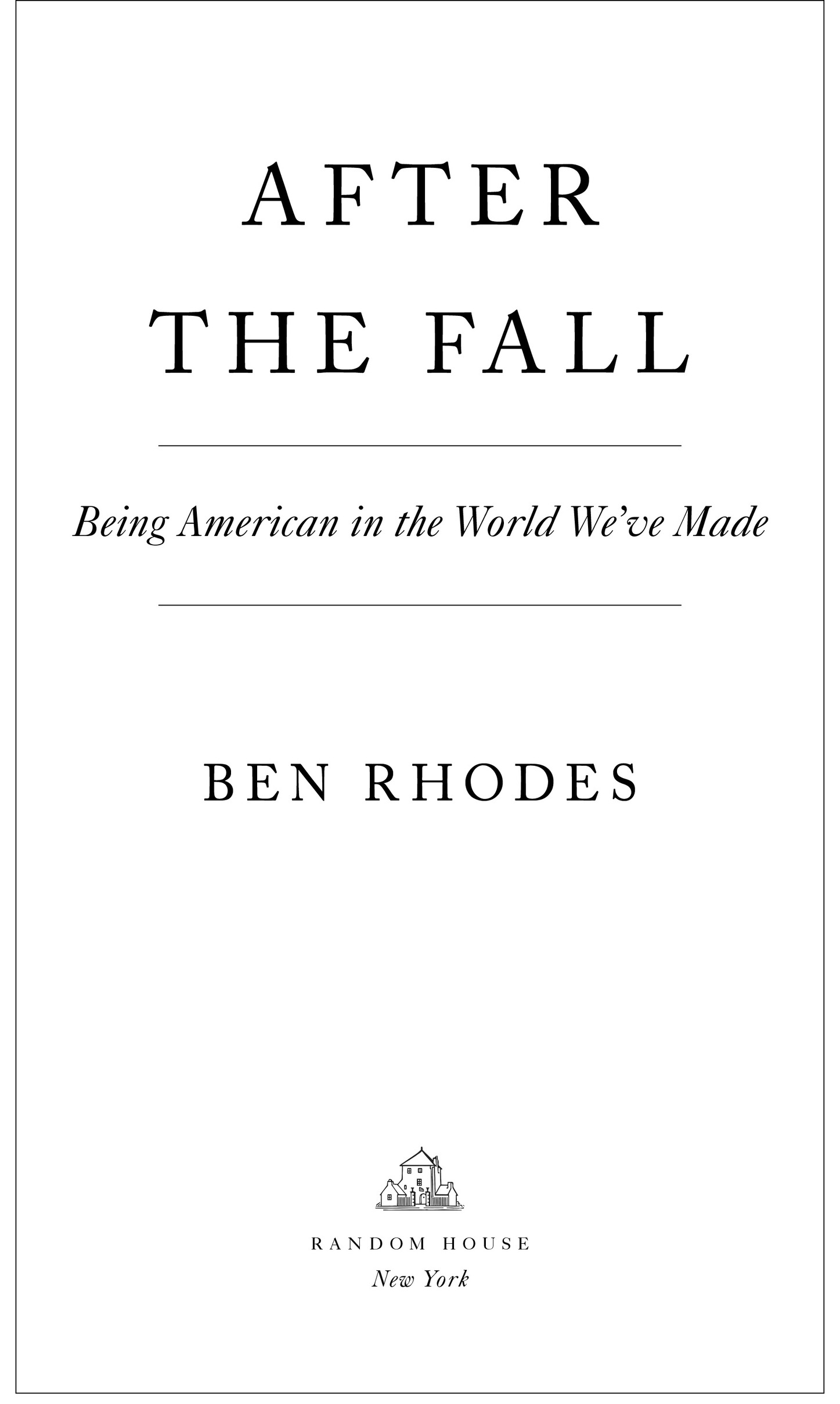
Copyright 2021 by Perry Merrill LLC
All rights reserved.
Published in the United States by Random House, an imprint and division of Penguin Random House LLC, New York.
Random House and the House colophon are registered trademarks of Penguin Random House LLC.
Library of Congress Cataloging-in-Publication data
Names: Rhodes, Benjamin, author.
Title: After the fall : being American in the world weve made / Ben Rhodes.
Other titles: Being American in the world weve made
Description: New York : Random House, [2021] | Includes index.
Identifiers: LCCN 2020056623 (print) | LCCN 2020056624 (ebook) | ISBN 9781984856050 (hardback) | ISBN 9781984856067 (ebook)
Subjects: LCSH: World politics21st century. | GlobalizationPolitical aspectsUnited States. | United StatesPolitics and government2017 | NationalismUnited StatesHistory21st century. | Political corruptionHungaryHistory21st century. | Political corruptionRussia (Federation)History21st century. | Political corruptionChinaHistory21st century. | Global Financial Crisis, 20082009.
Classification: LCC D863 .R48 2021 (print) | LCC D863 (ebook) | DDC 909.83/1dc23
LC record available at https://lccn.loc.gov/2020056623
LC ebook record available at https://lccn.loc.gov/2020056624
Ebook ISBN9781984856067
randomhousebooks.com
Book design by Fritz Metsch, adapted for ebook
Cover design: Oliver Munday
Cover photograph: Oliver Haynes/SOPA Image/LightRocket/Getty Images
ep_prh_5.7.0_c0_r0
The final takeover does not happen with one spectacular Reichstag conflagration, but is instead an excruciating, years-long process of many scattered, seemingly insignificant little fires that smolder without flames.
Ece Temelkuran
Once there was a nation that ascended to a position of preeminence unparalleled in history. This nation held within its hands the capacity to destroy, shape, and enlighten all human life on earth. Its position of preeminence was reached after what seemed like an inexorable rise: born in revolution, built in part by the toil of those who suffered the lash of the whip, preserved through the crucible of Civil War, populated by immigrants from everywhere, enlarged through the brutal conquest of a continental frontier, enhanced by great feats of engineering and ingenuity, validated by the defeat of fascist ideologies that subjugated people half a world away and the extension of civil rights at home.
The expansion of this nations influence was for a time contained by the barrier of an alternative form of human organization: communism. When the wall that symbolized this barrier came down, it was as if a dam had broken, allowing a great flood to water the soil on the other side. New markets would create wealth that people had been denied. Unmatched military strength would maintain peace among nations. Technological innovation would raise standards of living and make all human knowledge accessible to people everywhere. The people themselves would live in the freedom guaranteed by democracy, the uncorrupted government of, by, and for the people: the inevitable endpoint of history.
To be born American in the late twentieth century was to take the fact of a particular kind of American exceptionalism as granteda state of nature arrived at after all else had failed.
In the span of just thirty years, this assumption would come crashing down. Ironically, once they were unbridled, the very forces that enabled this nations rise would accelerate its descent. The globalized spread of profit-seeking capitalism accelerated inequality, assaulted peoples sense of traditional identity, and seeded a corruption that allowed those with power to consolidate control. After the attacks of September 11, 2001, this nations sense of purpose was channeled into a forever war that hemorrhaged resources, propagated a politics of Us versus Them, and offered a template and justification for autocratic leaders who represented an older form of nationalism. This nations new technologies proliferated like an uncontrolled virus before we understood their impact, transforming the way that human beings consume information; at first hopeful, the unifying allure of the Internet and social media segmented people back into lonely tribes where they could be more easily manipulated by propaganda, disinformation, and conspiracy theory. Somehow, after three decades of unchecked American capitalism, military power, and technological innovation, the currents of history had turned against democracy itself, bringing back those older forms of nationalism and social control in new packaging.
To be American in 2020 was to live in a country diminished in the world, unwilling to control the spread of disease or face up to our racism, and looking over the precipice of abandoning the very democracy that was supposed to be the solid core of our national identity.
Understanding how that happened is the starting point to figuring out how to move forward. America itself is a nation that encompasses the multitudes of humanity, a country populated with all of humanitys contradictions, hypocrisies, and opposing impulses. Having been humbled by our own excesses and salvaged by the narrow escape of the 2020 election, America has an opportunity to step back into history as a nation with a new understanding of how to improve upon the world we made. To do so, we have to re-create an identity that draws on our better history as a nation of outsiders, reflexively distrustful of power, joined together to do big things, united by a set of principles that allows each of us to be whoever we want to be regardless of tribe. That is what we owe the world, and ourselves.
After the fall, we must determine what it means to be American again.
I set out to write this book in the wake of the Obama presidency so that I could understand what happened to the world, my country, and myself. After working for eight years at the height of American political power, I felt like an exile in my own country. It was a newly disorienting reality, and one that lent itself to questioning every assumption I had as an American.
Travel was the most comforting and illuminating escape I could make from the political chaos back home. I took every opportunity I could to go overseas, and I found myself seeking out the kind of people I never really had the opportunity to fully know when I was in government: dissidents, activists, oppositionistsanyone, really, who looked at power from the perspective of an outsider. What an opportunityto learn the stories of individuals who lived the political trends that I had watched from the exalted distance of the White House. Unburdened by being American themselves, they experienced no difficulty of politeness or discomfort that prevented them from seeing the Trump years for what they were: an American experiment with fascism, albeit of a particularly incompetent and corrupt kind. But there was also a similarly obvious reality: The forces that produced a Trump presidency long predated it and would still be there after it was over. Indeed, a new model of nationalist authoritarian politics is a defining reality of our world today.
The more I investigated this phenomenon, trying to work it out for myself, the more I saw the fingerprints of the era of American hegemony on what was shaping the lives of people all around me. How the 2008 financial crisis had collapsed not only the global economy, but also confidence in the very fact of American-led globalization, opening the door to deeply familiar nationalist appeals. How the post-9/11 wars had also discredited American leadership while opening the door to a hypersecuritized politics of Us versus Them, one that could easily be repurposed to target an available Other in country after country. How the spread of social media had unleashed a flood of disinformation that undermined democracy while offering autocrats ever more powerful tools of social and political control.
Font size:
Interval:
Bookmark:
Similar books «Being American in the World Weve Made»
Look at similar books to Being American in the World Weve Made. We have selected literature similar in name and meaning in the hope of providing readers with more options to find new, interesting, not yet read works.
Discussion, reviews of the book Being American in the World Weve Made and just readers' own opinions. Leave your comments, write what you think about the work, its meaning or the main characters. Specify what exactly you liked and what you didn't like, and why you think so.

